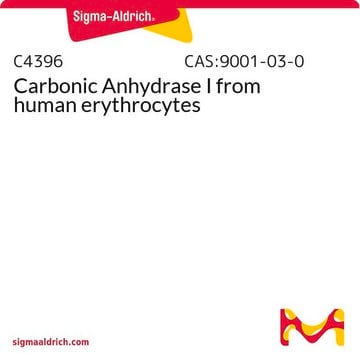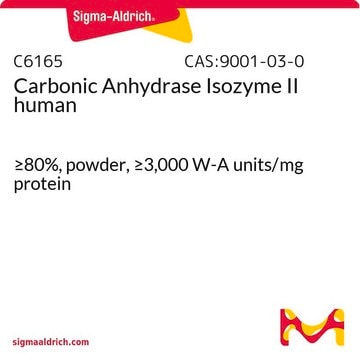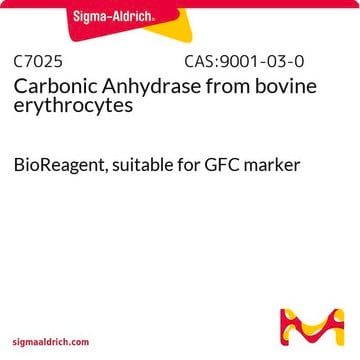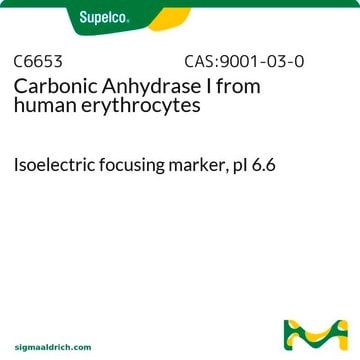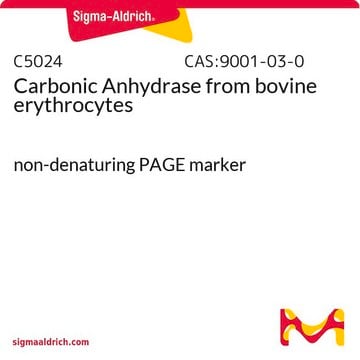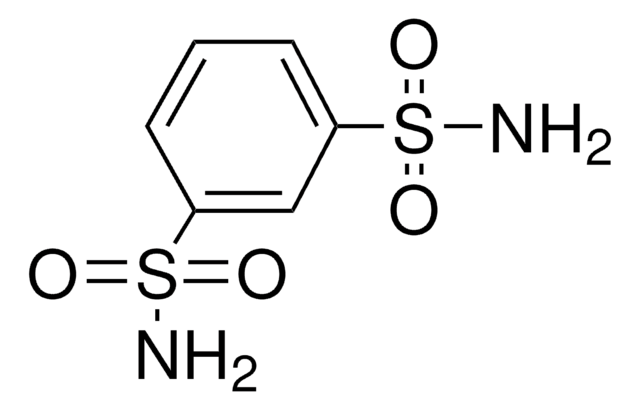C2522
Carbonic Anhydrase Isozyme II from bovine erythrocytes
lyophilized powder, ≥3,000 W-A units/mg protein
Sinónimos:
Carbonate Dehydratase, Carbonate Hydrolyase, Carbonic Anhydrase II
About This Item
Productos recomendados
biological source
bovine erythrocytes
Quality Level
form
lyophilized powder
specific activity
≥3,000 W-A units/mg protein
mol wt
30 kDa
pI
~5.9
storage temp.
−20°C
¿Está buscando productos similares? Visita Guía de comparación de productos
Application
Biochem/physiol Actions
Unit Definition
Inhibitor
signalword
Danger
hcodes
pcodes
Hazard Classifications
Resp. Sens. 1
Storage Class
11 - Combustible Solids
wgk_germany
WGK 3
flash_point_f
Not applicable
flash_point_c
Not applicable
ppe
Eyeshields, Gloves, type N95 (US)
Certificados de análisis (COA)
Busque Certificados de análisis (COA) introduciendo el número de lote del producto. Los números de lote se encuentran en la etiqueta del producto después de las palabras «Lot» o «Batch»
¿Ya tiene este producto?
Encuentre la documentación para los productos que ha comprado recientemente en la Biblioteca de documentos.
Los clientes también vieron
Protocolos
Objective: To standardize a procedure for the enzymatic assay of Carbonic Anhydrase (EC 4.2.1.1) for Wilbur-Anderson Units.
Nuestro equipo de científicos tiene experiencia en todas las áreas de investigación: Ciencias de la vida, Ciencia de los materiales, Síntesis química, Cromatografía, Analítica y muchas otras.
Póngase en contacto con el Servicio técnico



